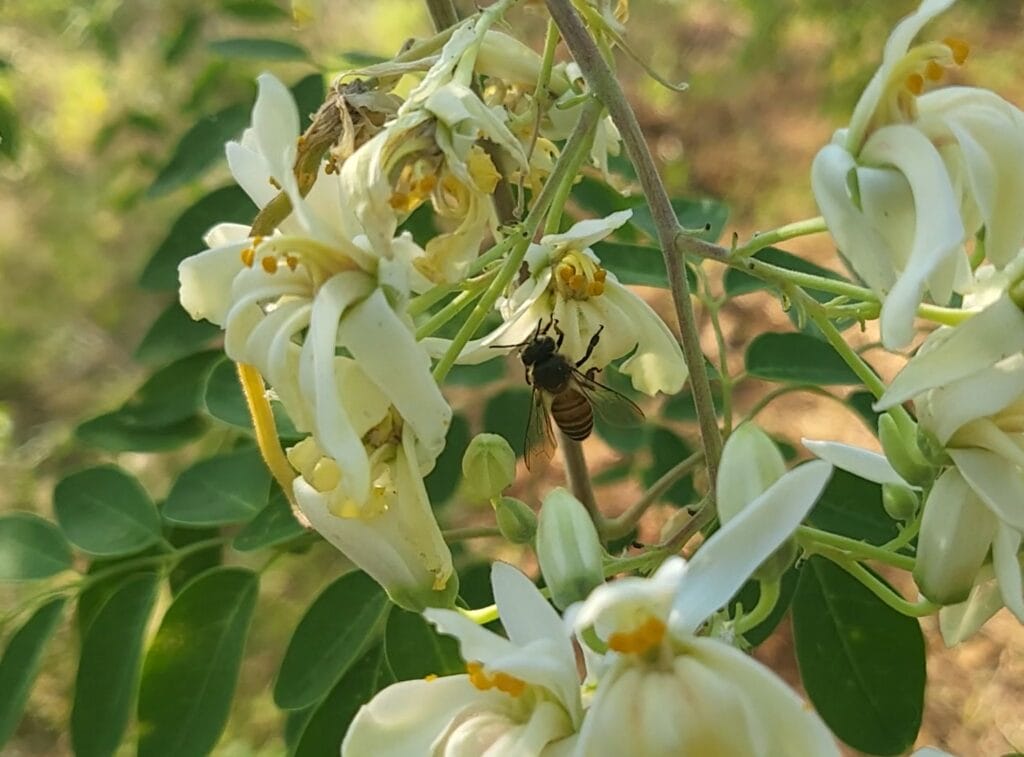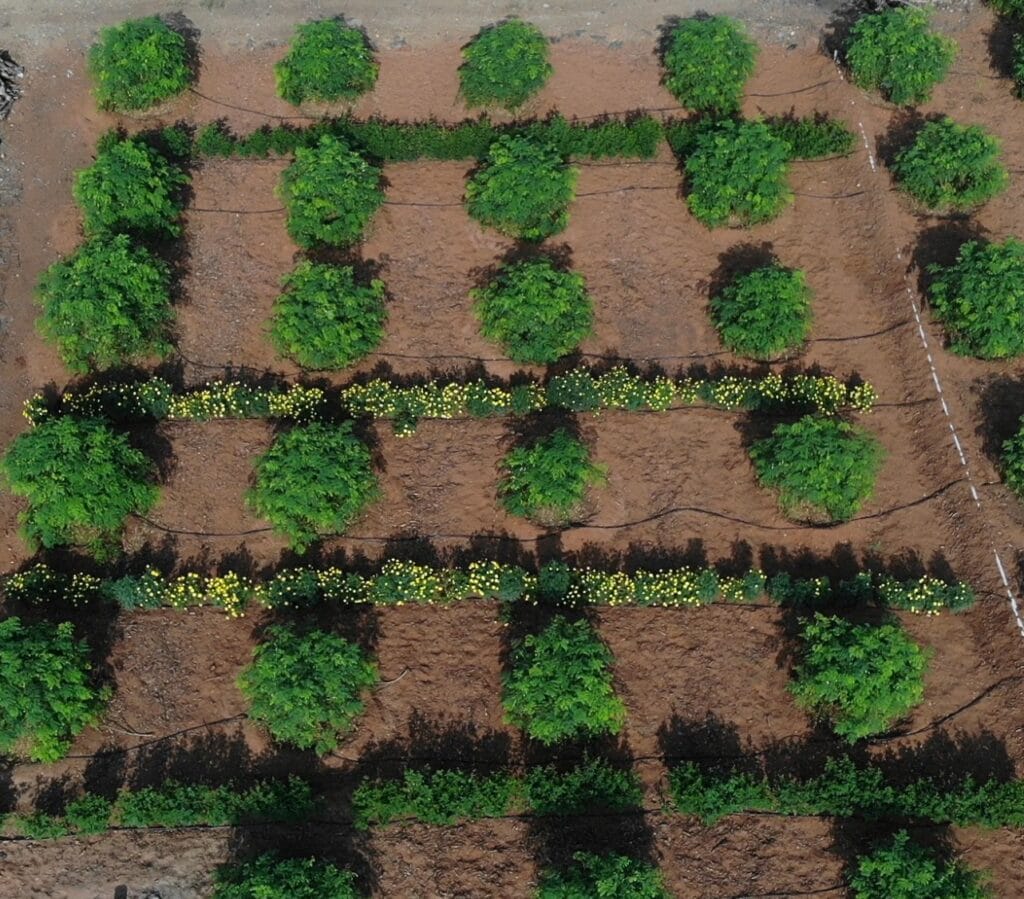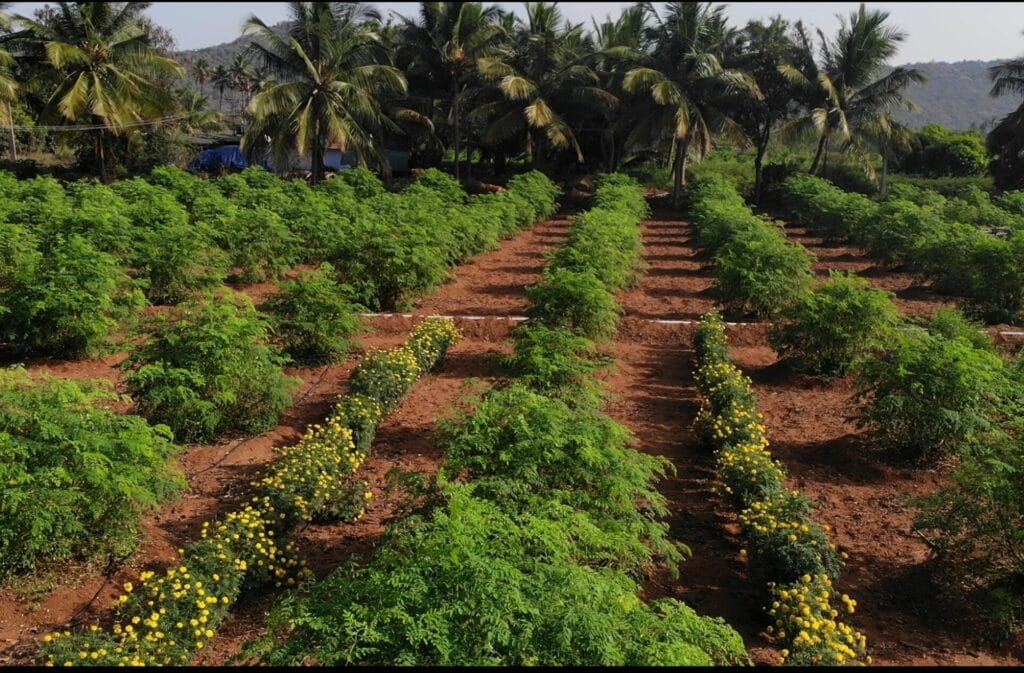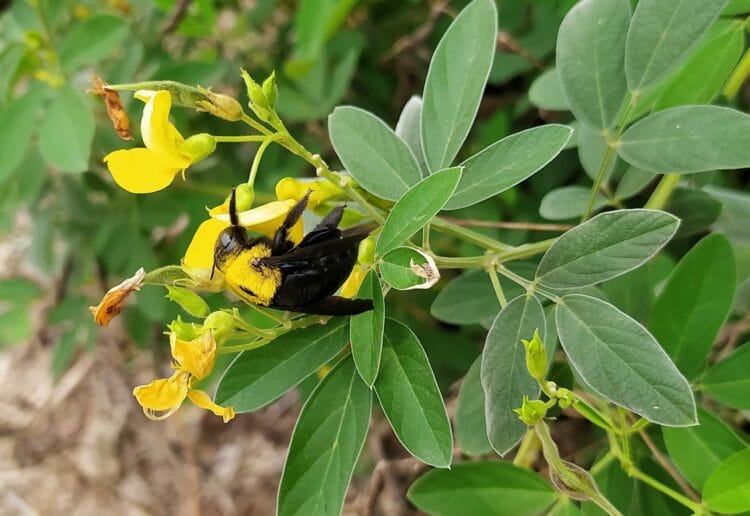THE UNIVERSITY of Reading has published new research showing how attracting more bees to crops provides benefits to farmers.
It follows studies conducted in India, the first of their kind in the country, which saw the planting of flowers beside crops encourage more pollinators to the area.
Ecologists from the university worked alongside M S Swaminathan Research Foundation in India to study the effects of bees on the moringa tree.

By planting flowers and certain other crops alongside the trees in orchards, the team noticed an increased abundance and diversity of flower-visiting insects.
This led to a boost in pollination of the plants, increasing crop yields in turn.
While such an effect has been studied in Europe, the study is the first of its kind to reproduce the results in India.
Research teams worked with farmers of 24 Moringa orchards in the Kannivadi region of Tamil Nadu.
They helped to plant redgram and marigolds in half of the orchards, and the other half were left as a control.

The number of flower-visiting insects saw a 50% increase in sites with the co-flowering plants, as well as a 33% increase in diversity, compared to those without.
The study was published on in the Journal of Applied Ecology, and formed part of the TROPICAL project, which the team at the University of Reading leads.
The project sees UK Research Institute funding, awarded from the Global Challenges Research Fund, to investigate how research evidence from UK studies can benefit tropical landscapes which rely on pollinators for crops.
India in particular has a high number of crops high in economic as well as nutritional value, such as mangoes and moringa tree.
Increasing pollination in these crops can lead to significant boosts to yields without using intensive farming practises such as chemical pesticides and fertilisers.
It also helps to combat the loss of natural habitats of insects, which further encourages biodiversity in the country.
The impact is felt particularly by smallholder farmers, who would benefit from bigger yields and better sustainability.

The University of Reading’s Dr Deepa Senapathi said: “Planting wildflowers on agricultural land is a tried and tested method seen in many arable fields and orchards in the UK and across Europe.
“This farming technique is known to boost insect pollinator numbers.
“We worked with farmers in South India to design the best co-flowering crops and boost the numbers of native bees and other insect pollinators visiting the moringa orchards.
“Greater yields and higher quality fruit will translate to a healthier and better food supply for smallholder communities
“The farming communities can also use the red gram as a protein source in their diets and receive extra income from selling the marigold flowers.”
























